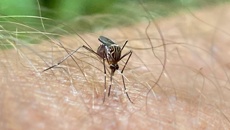
Cabinet will be playing "Russian roulette" with the health of New Zealanders if it makes a lockdown decision without first vastly improving rapid contact-tracing and collecting more information about Covid-19 in vulnerable communities.
That was the stark warning this morning from Otago University Professor and epidemiologist Sir David Skegg, who appeared before the Epidemic Response Committee for the third straight week.
Prime Minister Jacinda Ardern has said that Cabinet will make a decision on Monday on whether to lift or extend the nationwide lockdown from next Thursday.
But Skegg said the Health Ministry first needed to make giant strides in rapid contact-tracing, in order to deal with any new fast-spreading clusters, and surveillance testing, which means collecting information to see where coronavirus is present in the population or among certain demographics.
Skegg said New Zealand should be able to trace close contacts for all new cases within two to three days - which is Australia's current capacity - as well as having surveillance testing not only up and running, but completed by the end of this week.
"If the answer to those questions is 'no', I would submit that we're asking the Cabinet to play Russian roulette with the health of New Zealanders," Skegg said.
"I'm concerned the public health authorities have not yet completed the tasks that are needed to ensure we are on a path to elimination."
Skegg said it was foolish to presume a decline in new cases was enough to show the virus was being eliminated, and more testing data was needed to be more confident - especially among more at-risk groups.
Surveillance testing was essential before "we have reached the point where we can take our foot off the brake", and there was still no sign of when that would start taking place in New Zealand.
"This virus must still be circulating today in New Zealand among the many essential workers and others who are leaving heir bubbles everyday.
"As soon as the lockdown is lifted, the epidemic will take off again unless we have the other measures in place."
Earlier, Director General of Health Ashley Bloomfield had not been able to say how many days it was taking in New Zealand to contact-trace.
He added that surveillance testing was still yet to start, even though Health Minister David Clark said the roll-out was imminent on March 18.
Published testing data already showed that more testing was needed in Whanganui and Te Tai Rawhiti, and he said that such testing was now being done.
Ardern and Bloomfield have previously said that an app to enhance contact-tracing did not need to be ready before lockdown might be lifted.
/arc-anglerfish-syd-prod-nzme.s3.amazonaws.com/public/ZAR6VOJL7ZFJNIHABRNOUCBKPM.jpg?width=551&height=908&mode=max)
University of Otago's David Skegg. Photo / Otago Daily Times
Bloomfield has also pushed back on the need - proposed by infectious diseases specialist
Dr Ayesha Verrall - for close contacts of 1000 cases to be traced in a day. Bloomfield based this on the fact there are fewer than 1000 active cases in New Zealand now.
Skegg said New Zealand was in its third week of lockdown but still was nowhere near where it should be in terms of contact-tracing, which would be key in isolating and containing any new cluster post-lockdown.
Looser lockdown in Australia
Skegg rejected the suggestion that New Zealand should have followed the looser restrictions in Australia to allow for more wheels of the economy to keep turning, while still keeping Covid-19 in check.
"We're right to be ambitious. If we fail, we can slip back to what the Australians are doing, but you can't go the other way.
"I don't think we should apologise for trying to get a better outcome."
He said Australia's restrictions, which allowed for more construction, manufacturing and retail, were also likely to be in place for at least six months, but if New Zealand played its cards right, the lockdown would be over after four weeks.
Take your Radio, Podcasts and Music with you









